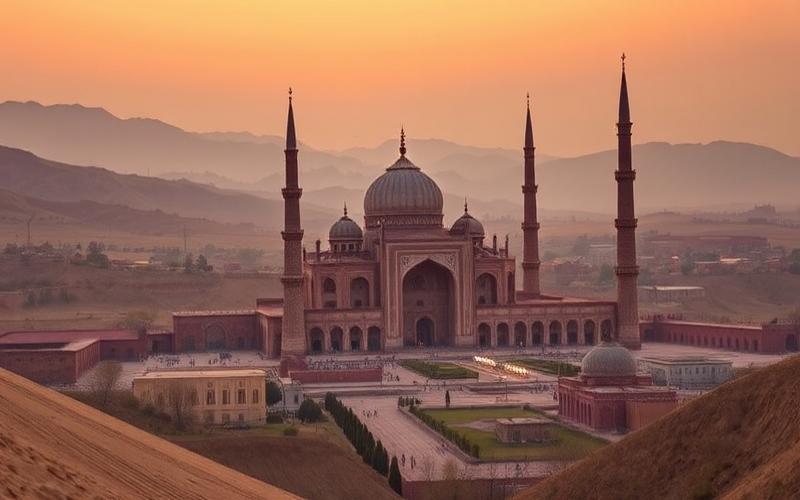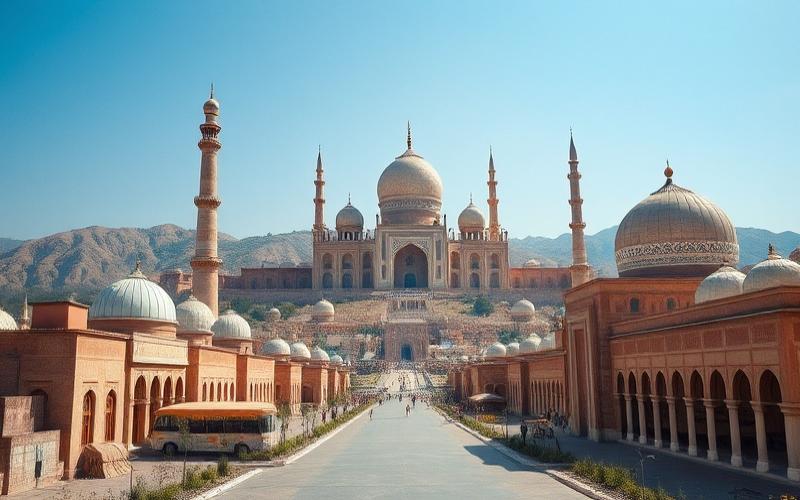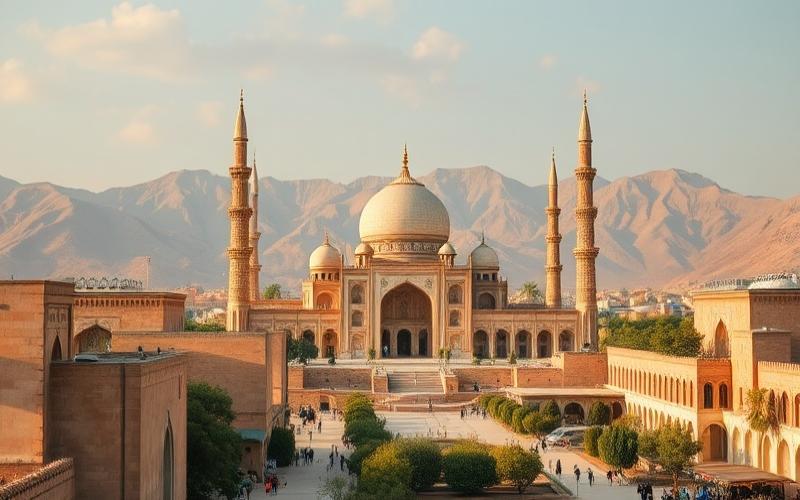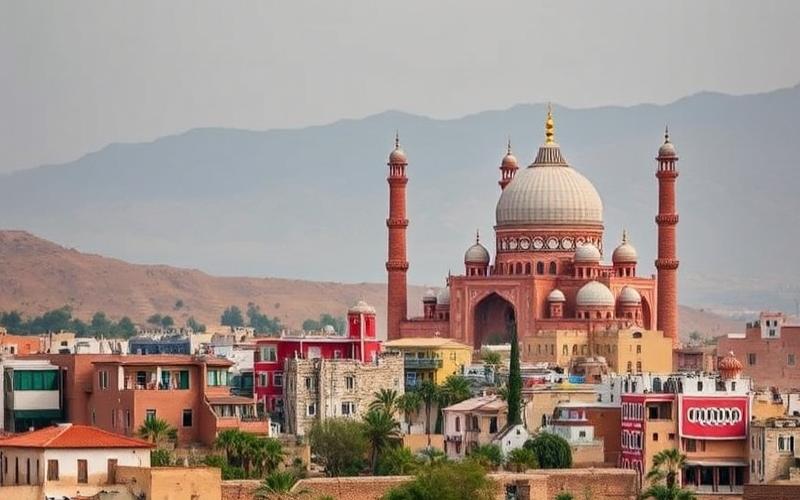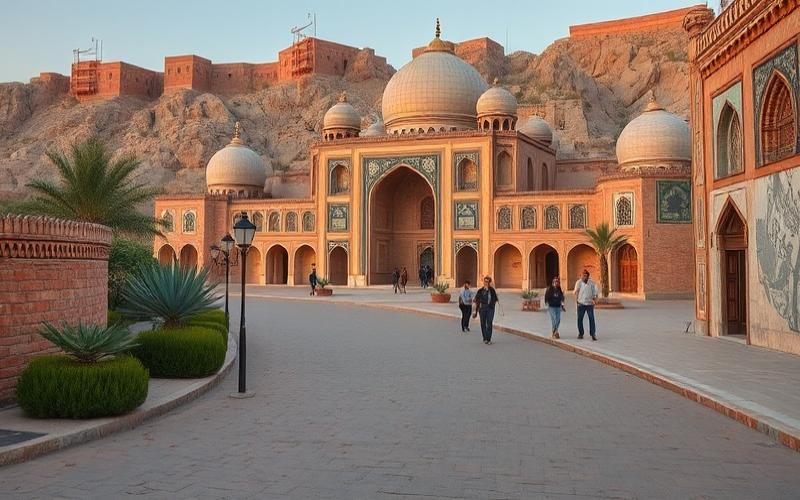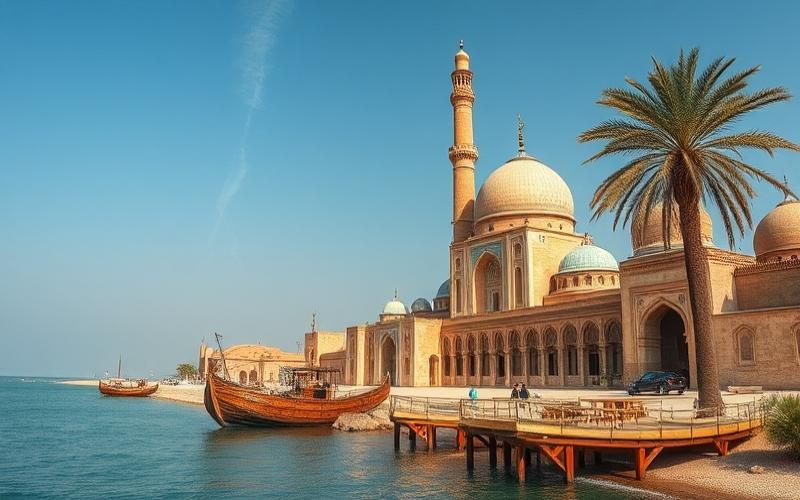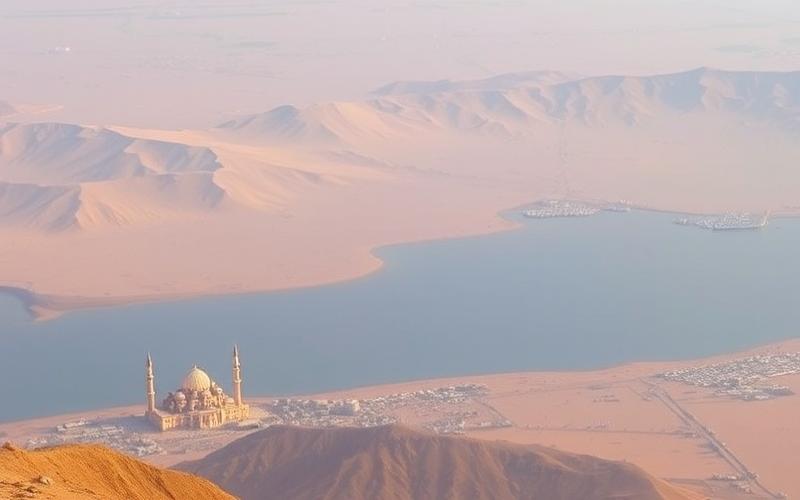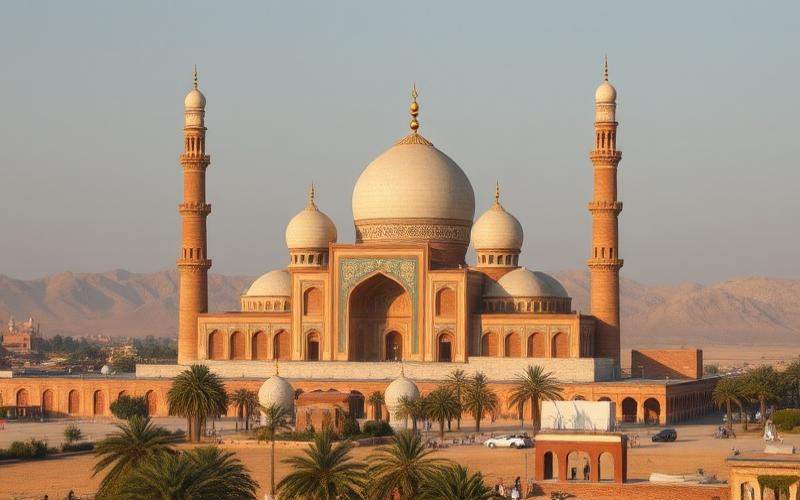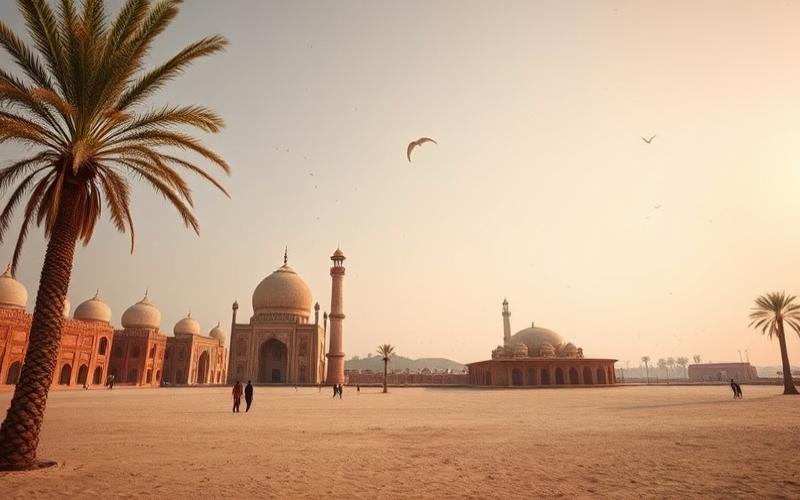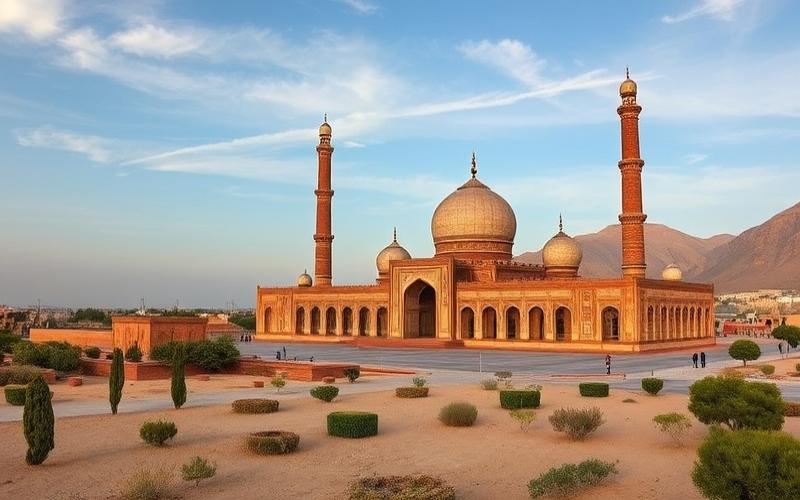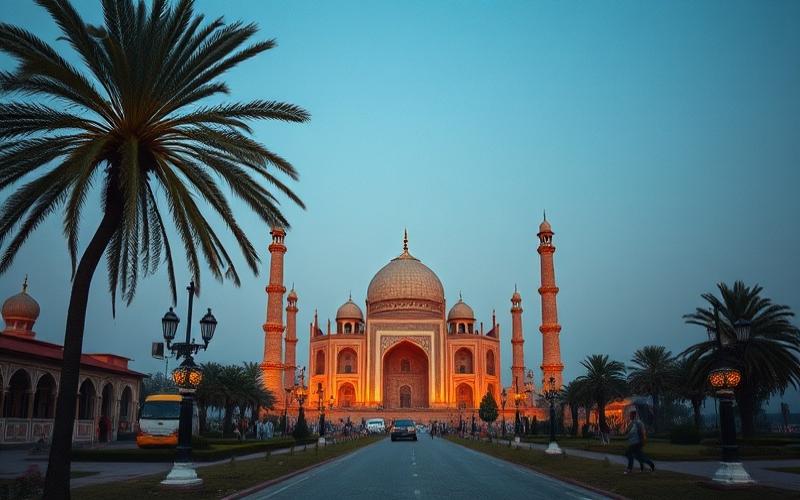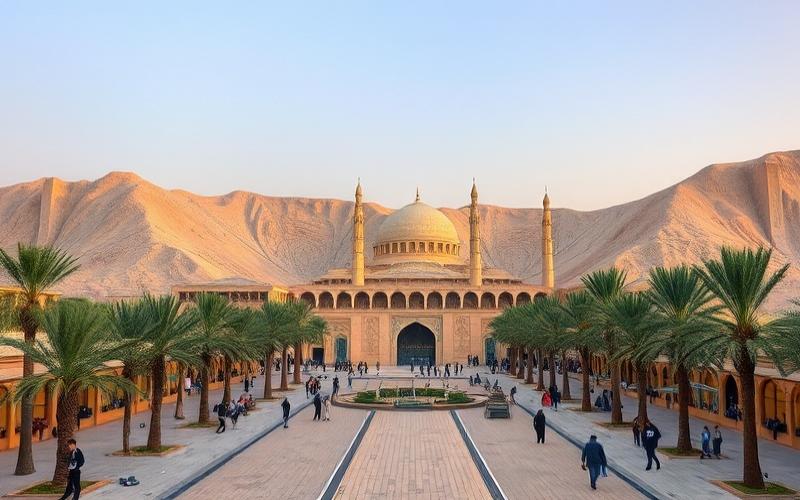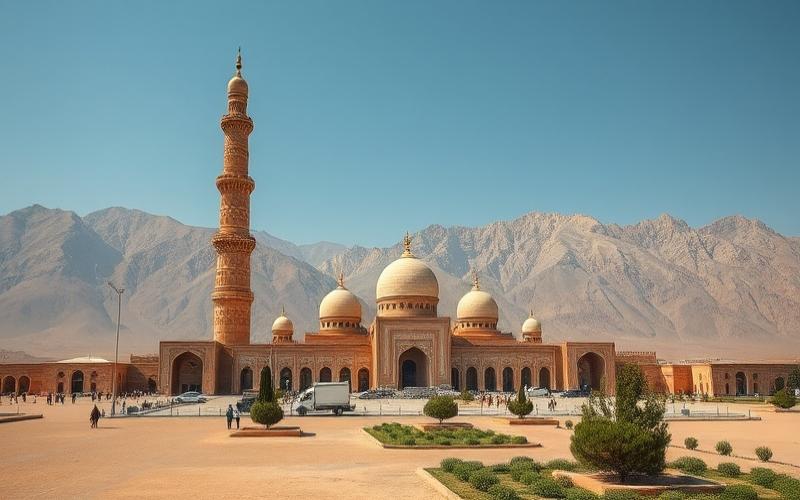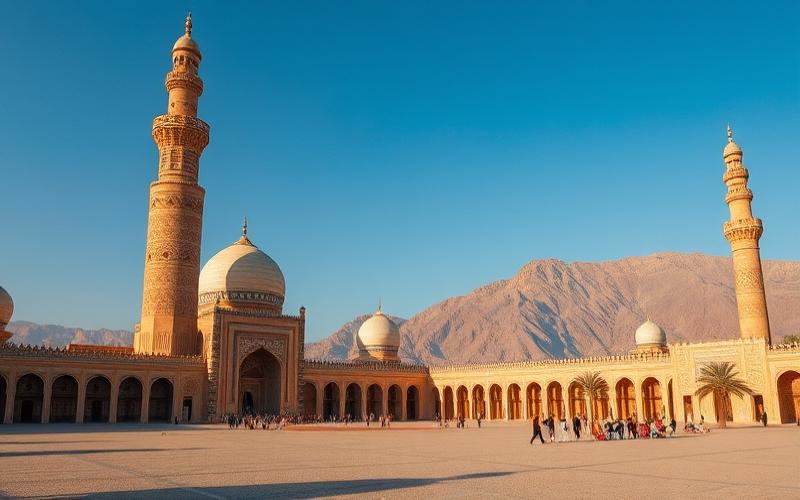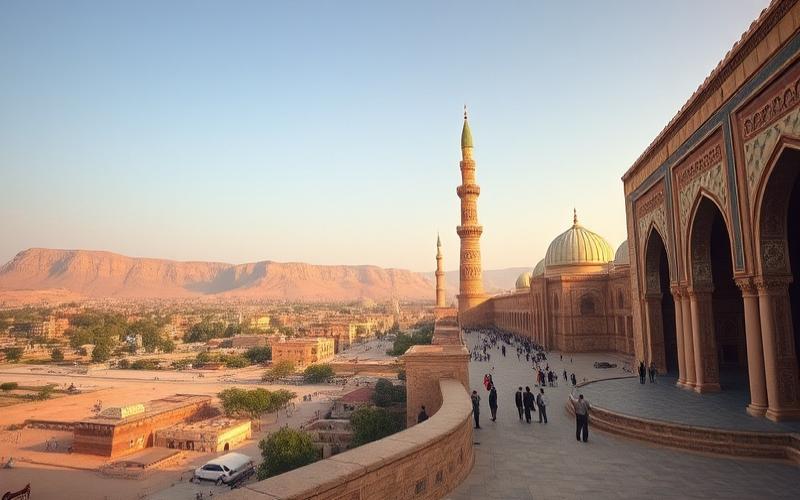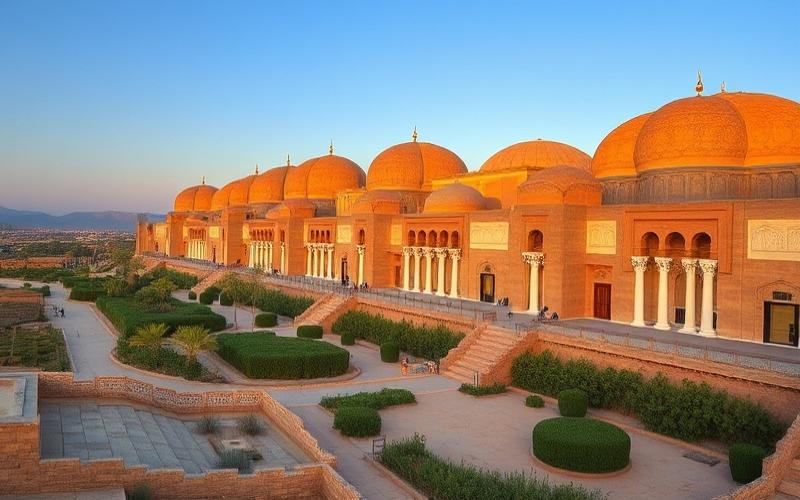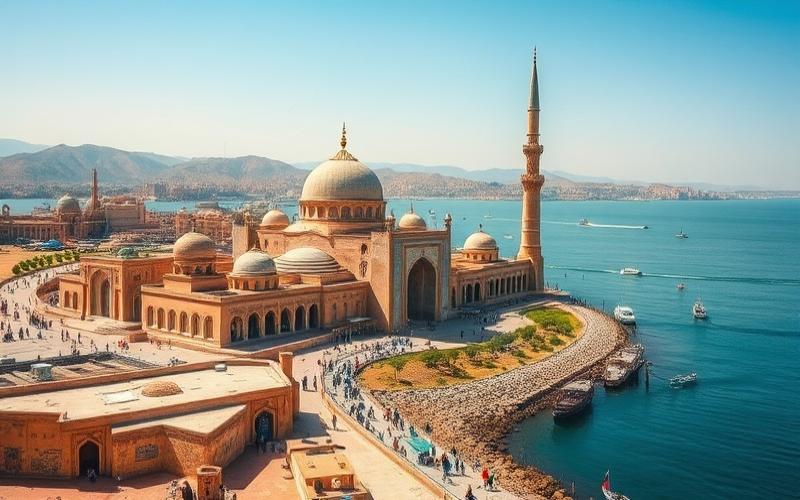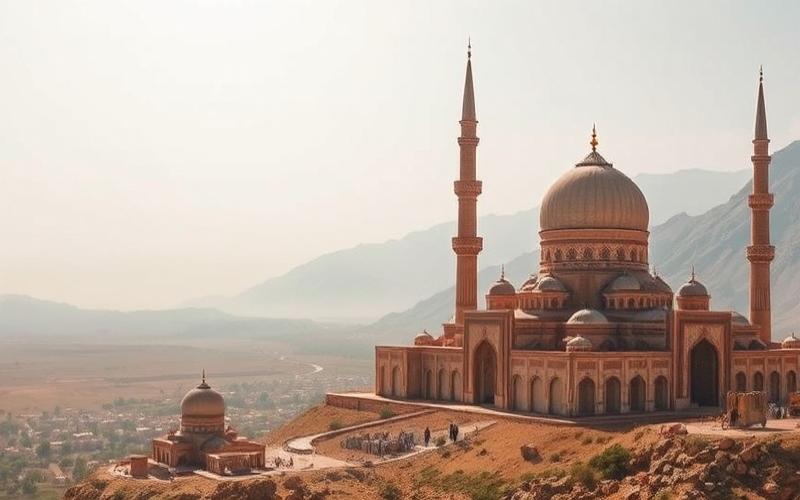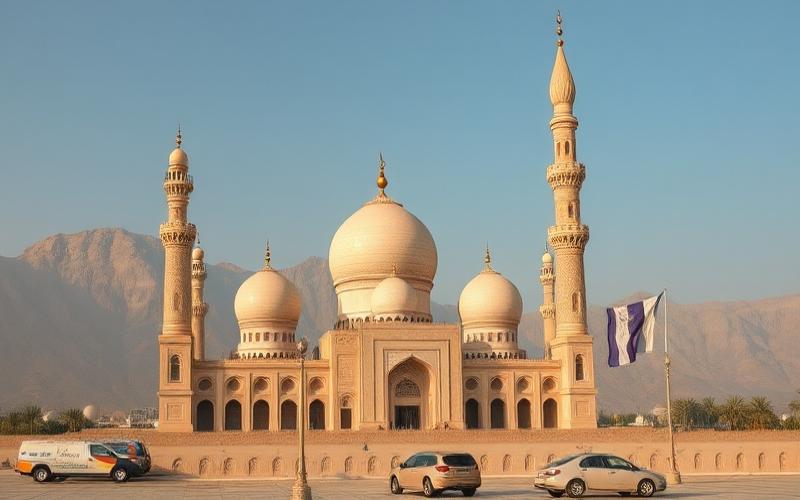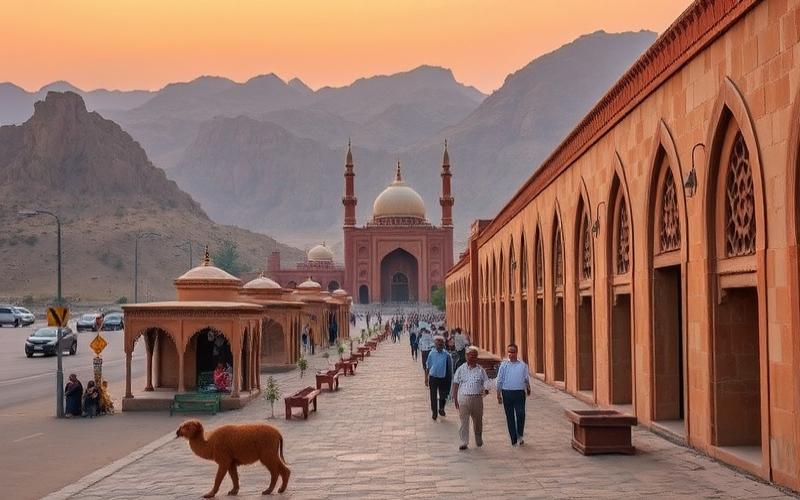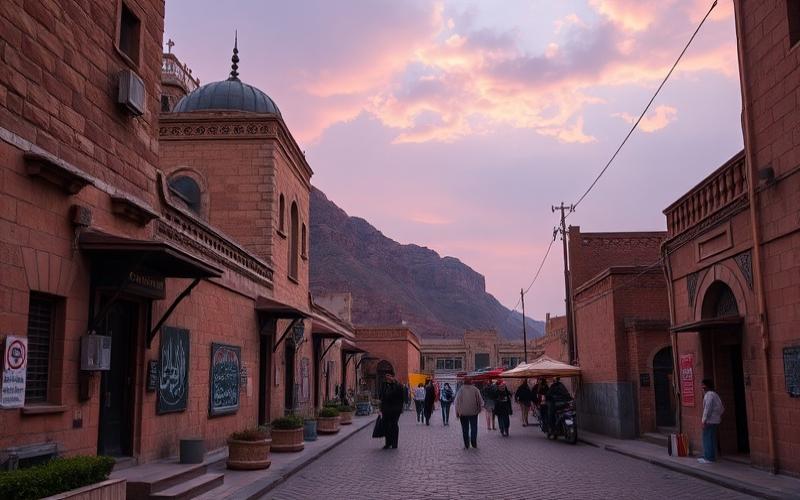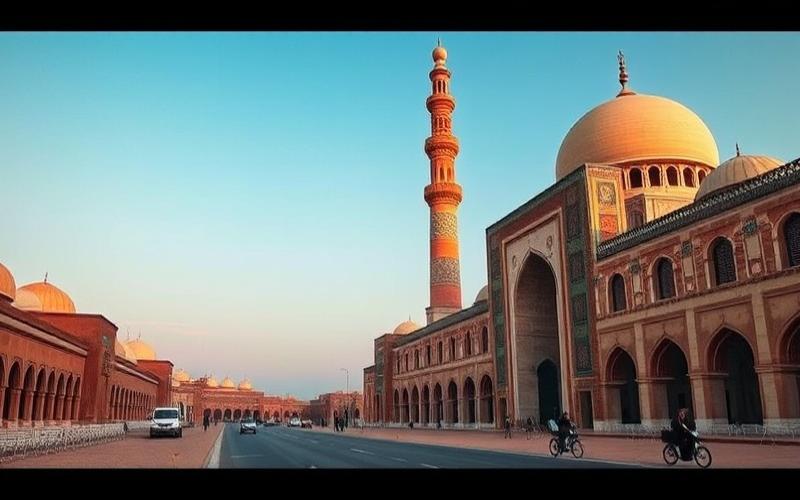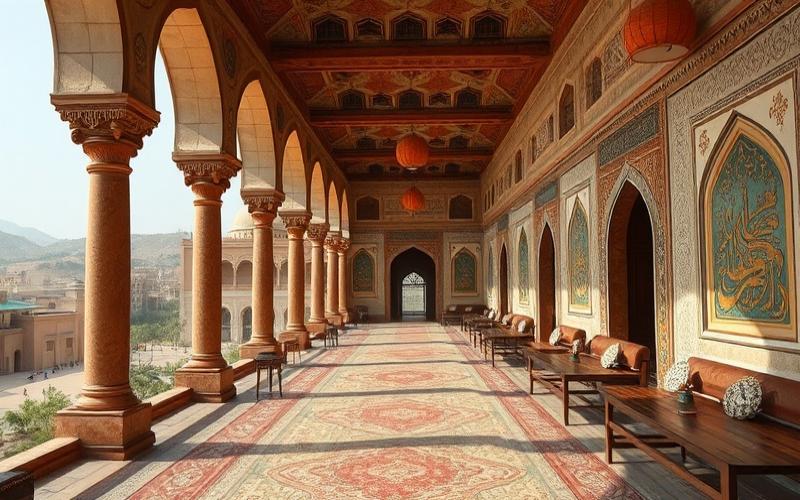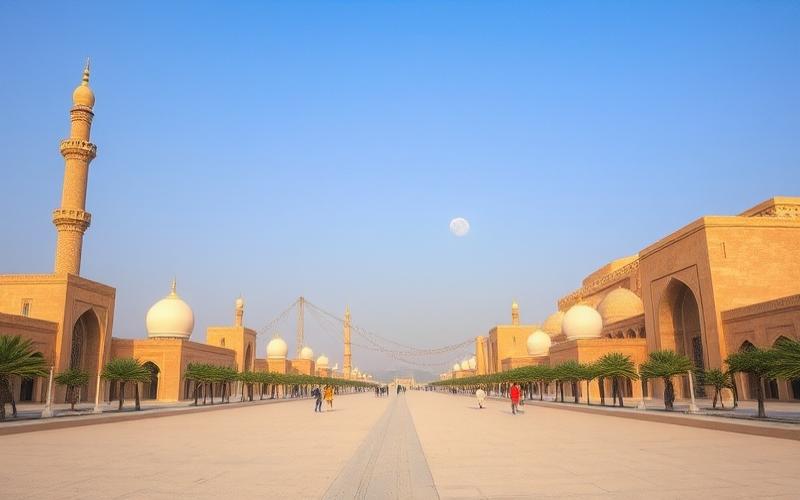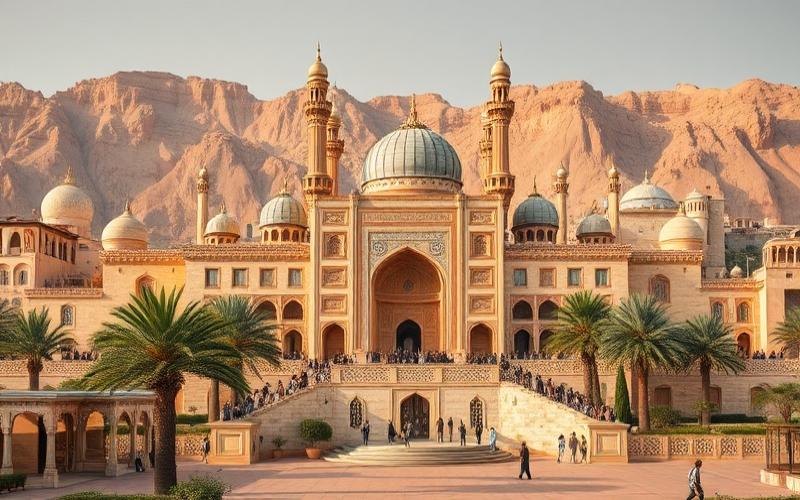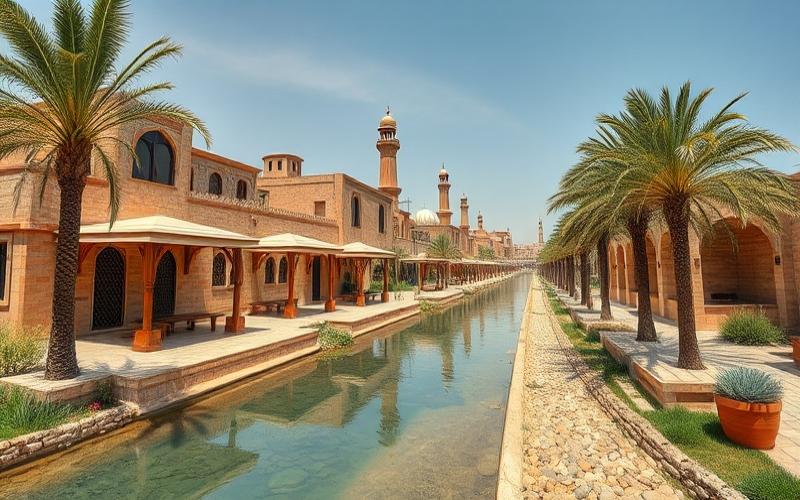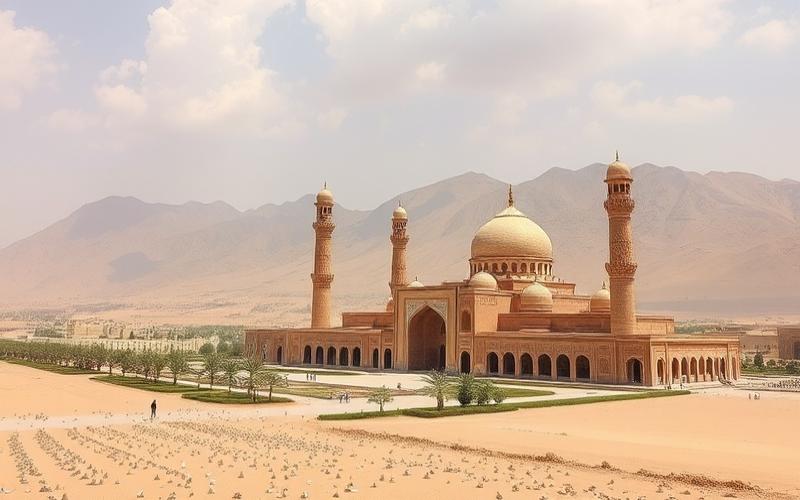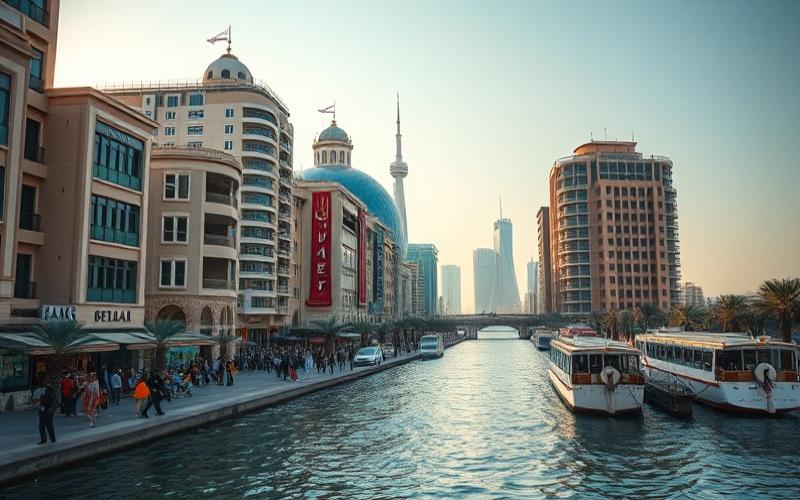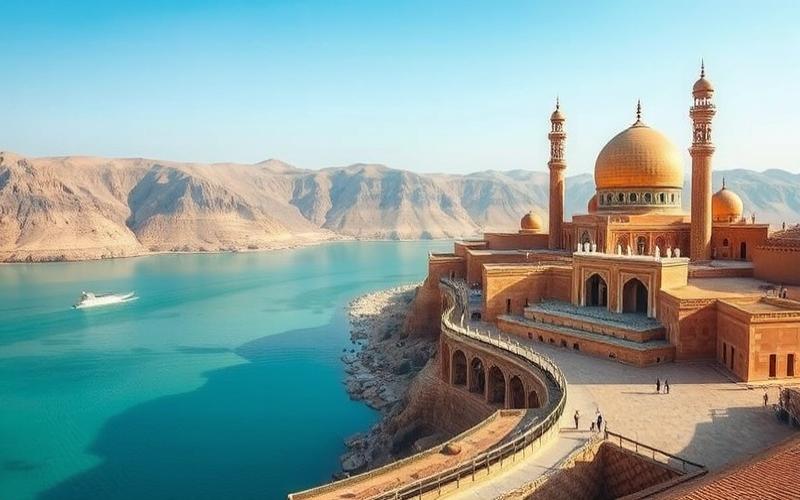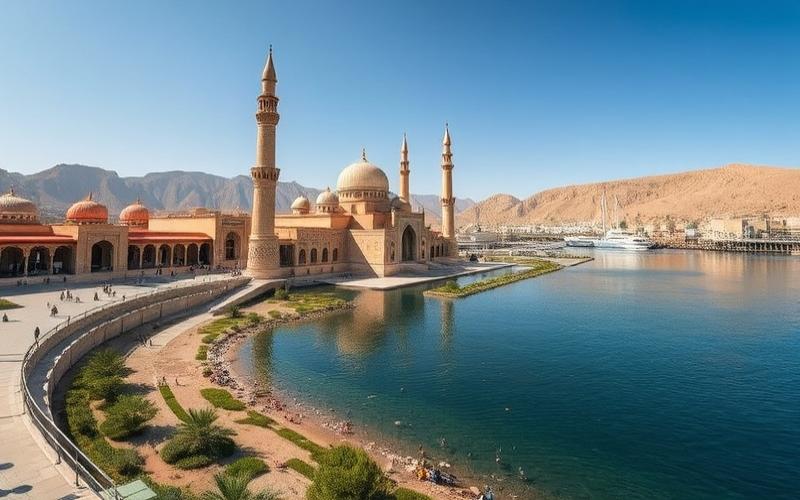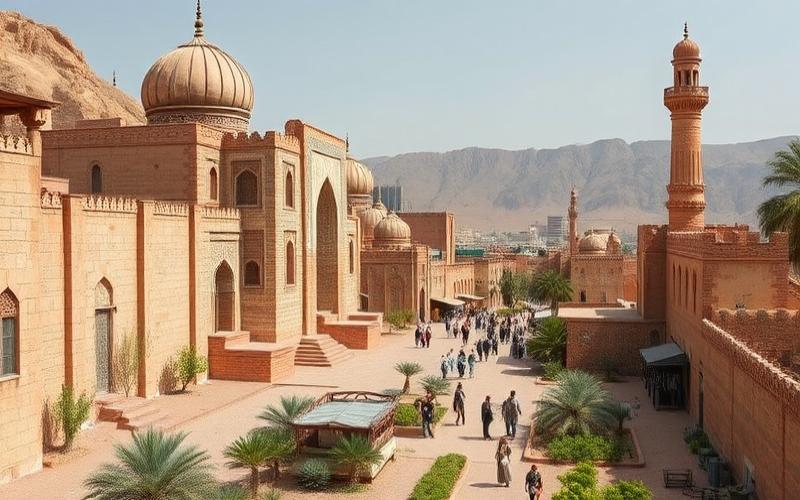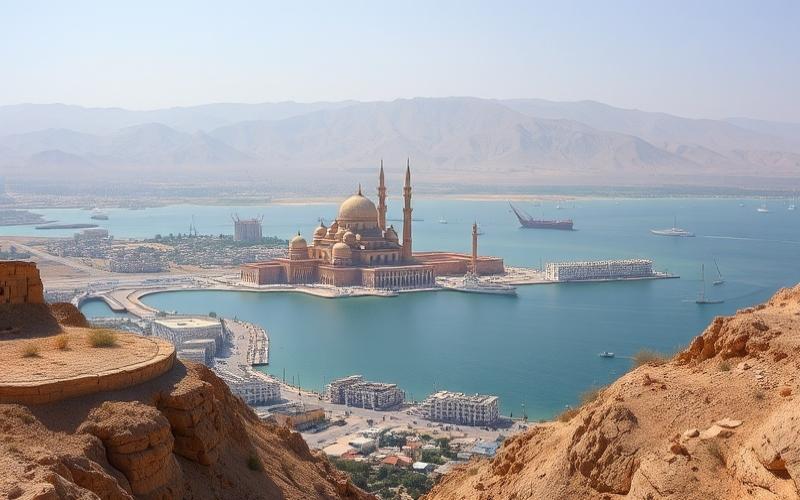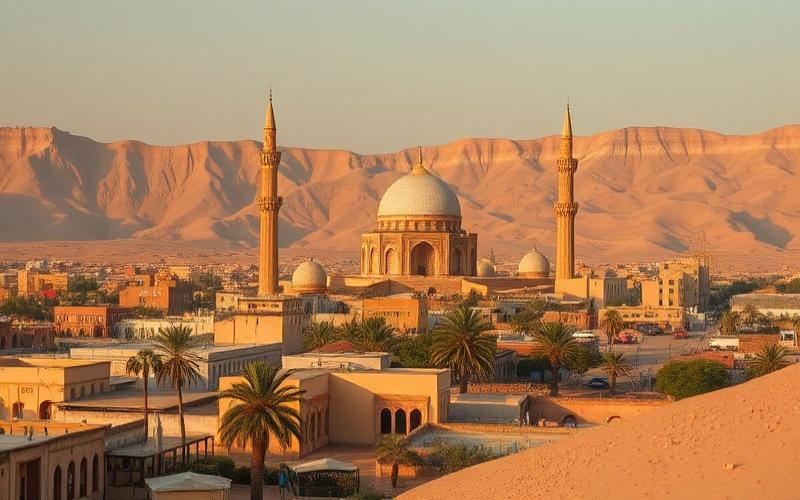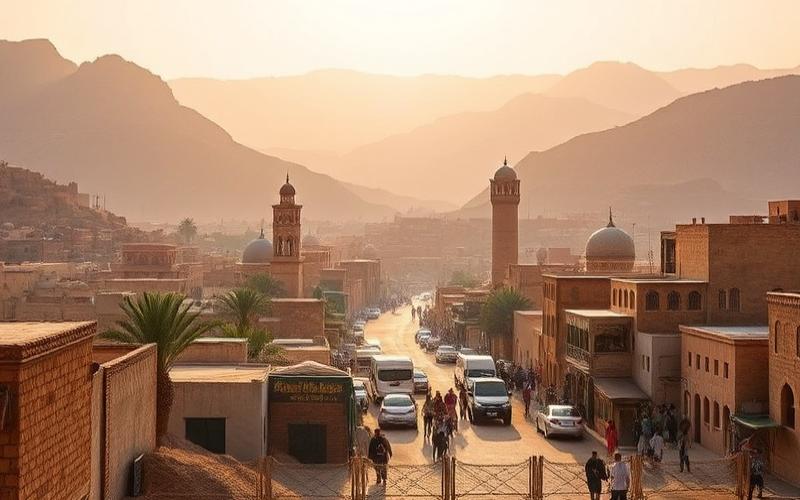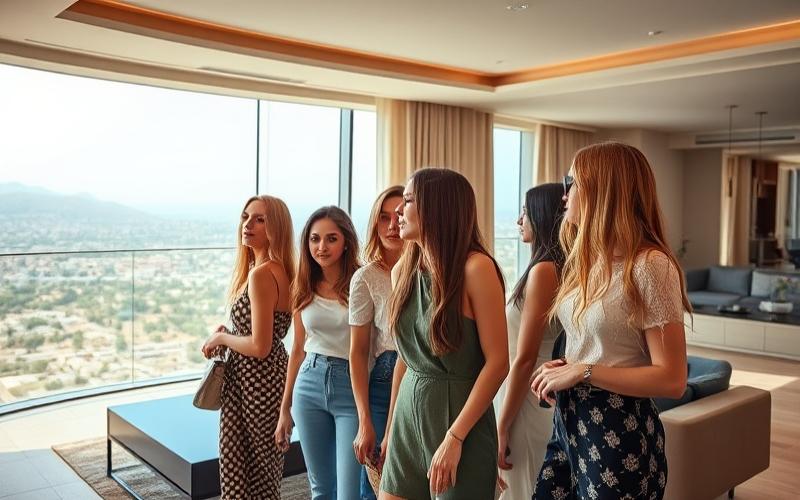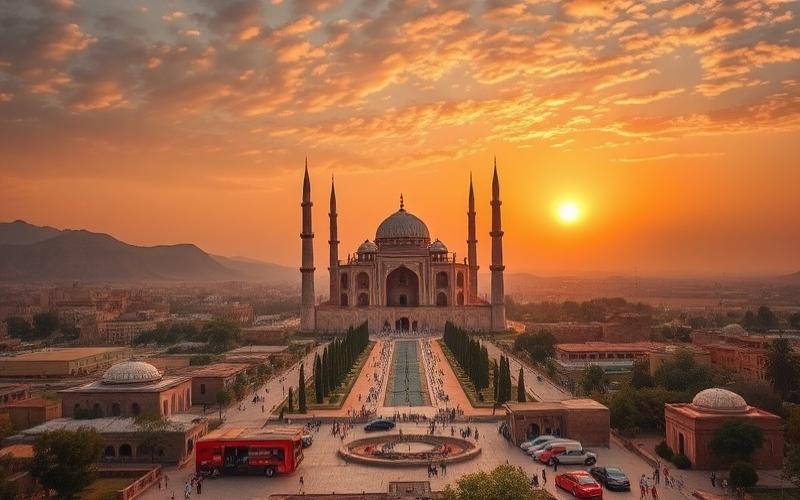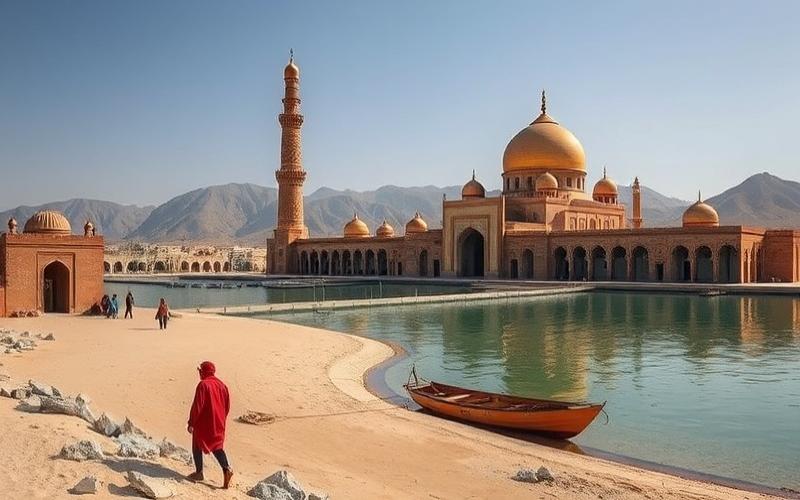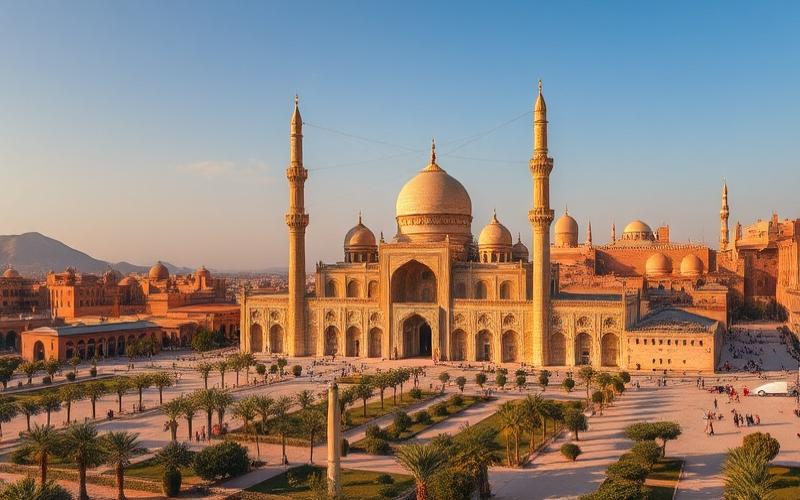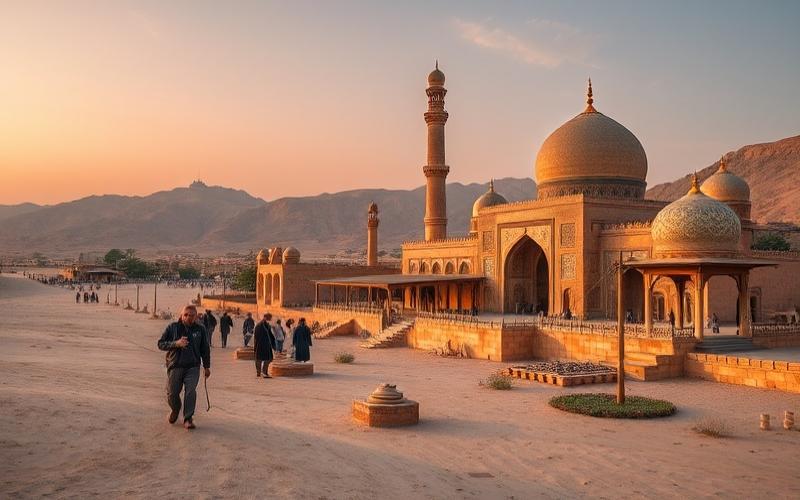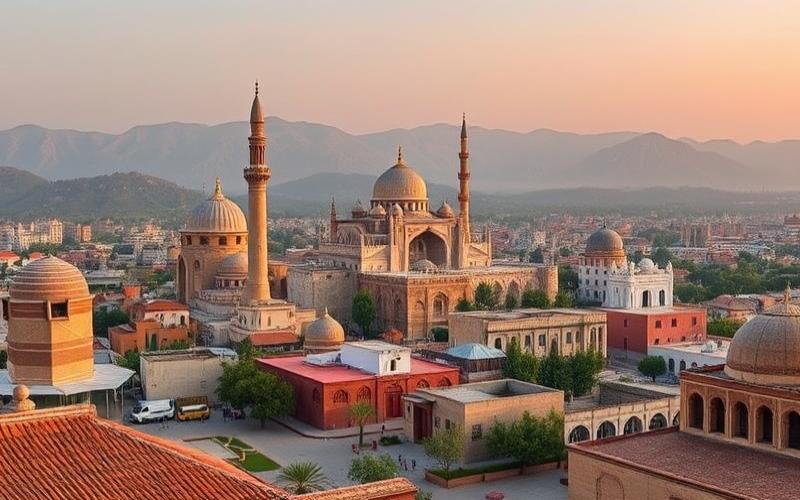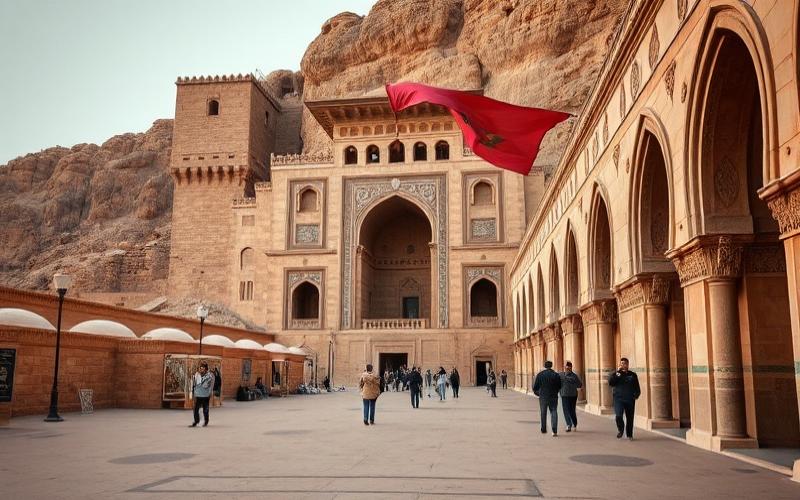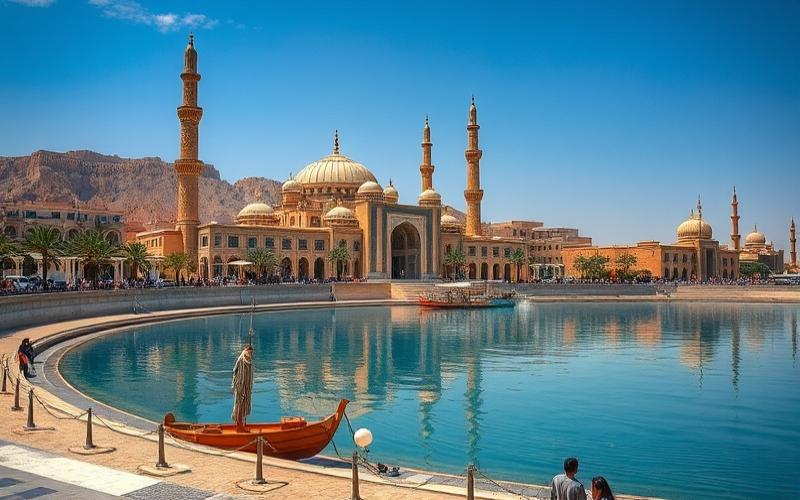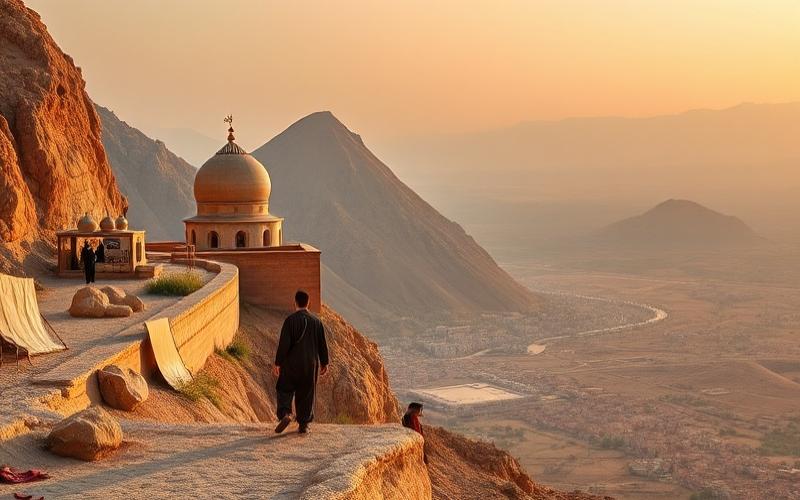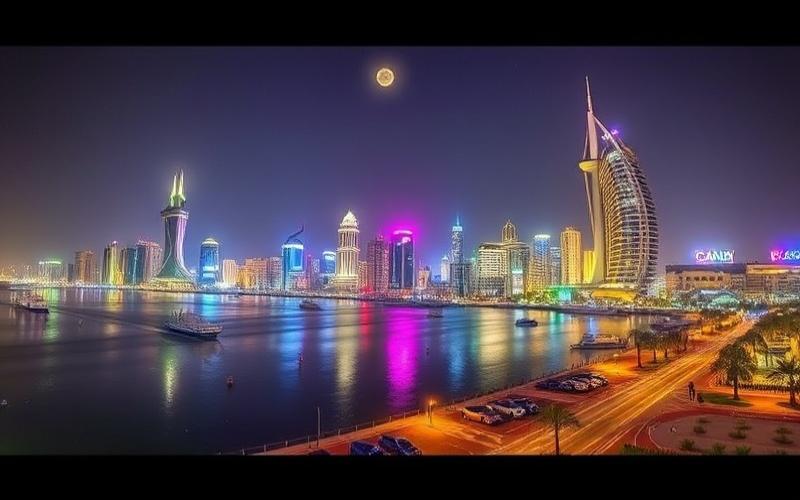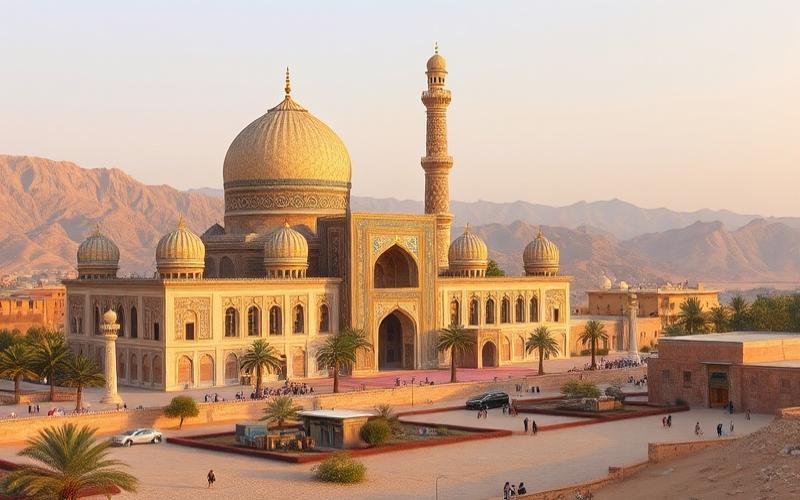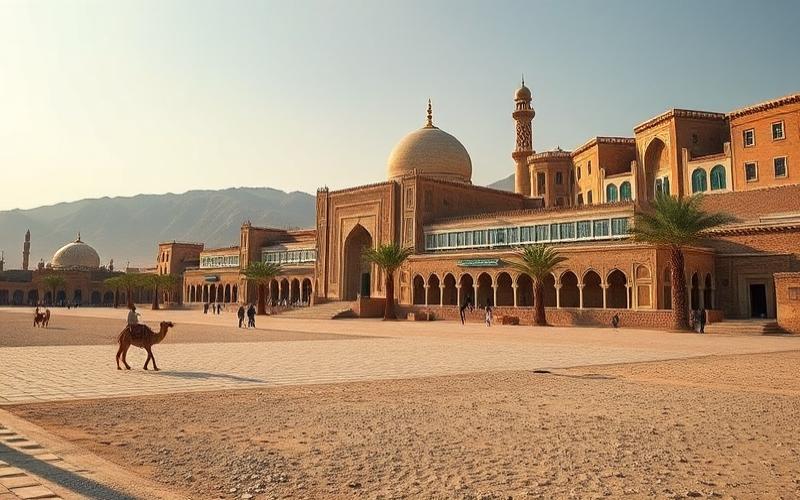
 Published on and written by Cyril Jarnias
Published on and written by Cyril Jarnias
As we approach the year 2025, Bahrain is emerging as a land of unique real estate investment opportunities, particularly in its authentic villages, which stand as true witnesses to its rich cultural heritage. These locations, blending tradition and modernity harmoniously, offer an attractive setting for investors seeking to capitalize on the potential of a rapidly growing market.
While the Bahraini government promotes initiatives to boost the real estate sector, investing in these villages not only allows one to benefit from economic growth but also contributes to preserving an invaluable cultural heritage.
Exploring investment prospects in these villages presents a rare opportunity to actively participate in a project that is both profitable and meaningful, bolstered by the appeal of a country undergoing significant transformation on the international stage.
Highlighting Bahrain’s Underestimated Rural Regions
Bahrain’s rural regions possess a subtle charm and cultural richness often underestimated, where arid nature coexists with oases of preserved traditions.
Natural Landscapes and Environment
- Ubiquitous desert, punctuated by small green agricultural areas where palm trees, date palms, and vegetable crops survive despite the aridity.
- Oases surrounded by cultivated lands, particularly visible in Diraz or A’ali, providing precious freshness and biodiversity.
- Discreet local wildlife, mainly birds, small mammals, and reptiles adapted to the dry climate.
- Winter offers soft light and pleasant weather, while in summer, intense heat envelops the villages in an almost timeless atmosphere.
Local Culture and Preserved Traditions
- Community life marked by solidarity and the warm hospitality of residents.
- Practice of traditional fishing and agriculture, notably date palm cultivation and livestock farming.
- Religious celebrations and local festivals, such as the commemoration of Ashura in Sitra or Bani Jamra.
- Living craftsmanship: pottery in A’ali, weaving in Karbabad, basketry in Karzakan.
Specific Investment Opportunities
| Sector | Opportunity | Local Impact |
|---|---|---|
| Ecotourism | Development of nature and cultural tours | Job creation, heritage enhancement |
| Sustainable Agriculture | Promotion of organic farming, efficient irrigation | Food security, soil preservation |
| Crafts and Artisanal Trades | Support for cooperatives, workshops open to the public | Transmission of skills, income diversification |
| Traditional Accommodation | Restoration of village houses into guesthouses | Authentic lodging for tourists, direct income for families |
Expected Effects on Local Economy and Authenticity
Targeted investments promote the maintenance of agricultural activity and the transmission of traditional trades, while diversifying income sources.
Well-managed ecotourism attracts visitors sensitive to authenticity and environmental respect, generating direct economic benefits without distorting landscapes or culture.
Valuing local crafts allows younger generations to embrace their heritage while opening up to new markets.
Examples of Villages and Unique Attractions
| Village | Special Features and Attractions |
|---|---|
| A’ali | Famous for its pre-Islamic burial mounds and pottery workshops where ancestral techniques are still practiced. |
| Diraz | Agricultural villages with palm groves, renowned for date palm cultivation and the friendliness of its local markets. |
| Karzakan | Coastal village surrounded by mangrove forests, basketry traditions, opportunities for eco-walks. |
| Bani Jamra | Known for artisanal weaving (especially traditional fabrics), and its small farms. |
| Sitra | Island-village where traditional fishing, market gardening, and religious festivals structure community life. |
Investing in Bahrain’s rural regions means preserving a living heritage while supporting their harmonious and sustainable development.
Good to Know:
Bahrain’s rural regions, such as the villages of A’ali and Karzakan, stand out for their picturesque natural landscapes and rich local culture, offering an ideal backdrop for ecotourism. A’ali is famous for its traditional pottery, a craft practice that attracts culture enthusiasts and could benefit from new markets through investments in local crafts. Karzakan, with its date farms and green spaces, presents opportunities for sustainable agriculture, allowing investors to contribute positively to the local economy while preserving age-old traditions. Encouraging these initiatives not only boosts village economies but also ensures the conservation of rural authenticity, thereby transforming these villages into attractive destinations for those seeking a unique and authentic cultural experience in Bahrain.
Investing in Bahrain’s Rural Real Estate: A Profitable Opportunity
Investment in rural real estate in Bahrain is part of a context of sustained national real estate growth, with rental and tourist dynamics gradually extending to authentic villages and rural areas.
Recent Growth and Rural Market Forecasts
- Growth in residential real estate transactions in Bahrain reached 5.1% in 2023, driven by foreign demand, the rise of second homes, and the development of new infrastructure.
- While the majority of volume concerns urban areas (Manama, Amwaj Islands), a gradual extension of demand is observed towards peripheral villages offering a more traditional environment.
- Experts anticipate that by 2025, tourist dynamism (+38% arrivals in Q2 2025) will strengthen interest in these typical localities sought for their authenticity.
Specific Advantages of Rural/Village Properties
- Entry prices significantly lower than sought-after urban neighborhoods (starting from €125,000, compared to often +30–50% in modern city centers).
- High appreciation potential due to the relative scarcity of renovated traditional properties or those converted into tourist accommodations.
- Growing demand for “slow tourism” experiences, immersive stays, and wellness retreats outside conventional circuits.
- Attractive rental profitability during cultural events or religious festivals attracting local/international visitors.
Government Incentives & Favorable Policies
Summary list:
- Extension of the “freehold” regime (full ownership) to several strategic rural localities since late 2023.
- Tax exemption on real estate rental income for both foreign and national investors.
- Government programs encouraging the renovation of village heritage through partial subsidies or subsidized loans for rural tourism projects.
Real Estate Cost Comparison: Rural vs Urban
| Location | Average Villa/Apartment Price | Estimated Gross Yield |
|---|---|---|
| Manama/Juffair Center | >€200,000 | 6–8% |
| Amwaj Islands | ~€175,000 | 7–9% |
| Traditional Village* | from €125,000 | up to 10% |
*Estimate on renovated properties with heritage character; Q2/Q3 2024 data
Expected Returns & Case Studies
Investor testimony:
“After complete renovation of an old house in a coastal village near Muharraq, we observed higher occupancy than expected on Airbnb (>85%) during peak season. The net annual return exceeded that from our urban apartments.”
— French expatriate investor based in Bahrain
Sector study:
Seasonal village rentals frequently reach 8–10% gross/year, driven by the “authenticity” effect among European/Gulf tourists seeking tranquility and cultural immersion. Prices remain attractive but are expected to rise under combined pressure from domestic tourism/international demand according to several local analysts.
Emerging Trends/Influential Economic Factors (2025 Horizon)
- Accelerated development of road infrastructure connecting main cities/peripheral villages
- Continuous growth in tourism (+562% annual revenue)
- Increased search for private green spaces by expatriates/affluent locals post-pandemic
- Proactive policy aiming to diversify the economy beyond the oil sector, strengthening the strategic role of alternative real estate
Expert forecast boxed:
“Bahraini rural real estate now represents a very promising niche, with upside potential exceeding traditional segments – notably thanks to the heritage/tourism repositioning undertaken over the past two years.”
Good to Know:
Investing in rural real estate in Bahrain in 2025 represents a lucrative opportunity, supported by an expected rural real estate market growth of 4% per year, according to recent sector studies. The country’s authentic villages, such as Al Jasra and Barbar, offer net advantages like more affordable prices than urban areas, with purchase costs often 30% lower. Government incentives, such as tax reductions and subsidies for restoring historical buildings, actively encourage rural investment. Rental yields average 6% annually, supported by successful case studies and growing demand for authentic stays. Real estate experts predict that the rise of remote work and infrastructure development, like road network expansion, will increase the attractiveness of rural areas. Leveraging these trends and favorable policies, investment in these regions could offer better long-term opportunities compared to saturated urban markets.
Bahrain’s Authentic Heritage: An Asset for Investors
Bahrain’s heritage stands out for its millennial richness, cultural diversity, and exceptional preservation of historical sites, giving it a rare authenticity in the Gulf region. This uniqueness is expressed through several dimensions:
- Natural Pearl Heritage: Bahrain is the only Gulf country to have inscribed, in 2012, the “Pearl Route” as a UNESCO World Heritage site. This route includes 17 historical buildings, three oyster beds, a coastal section, and the Abu Maher Fort. It testifies to the importance of the pearl trade in the nation’s history and identity, and the kingdom’s commitment to preserving this exceptional heritage.
- Authentic Villages and Neighborhoods: The city of Muharraq, the former capital, preserves picturesque alleys, traditional houses with wind towers (“bagdirs”), and palaces such as that of Sheikh Isa Bin Ali al-Khalifa, a remarkable example of local Islamic architecture.
- Unique Archaeological Sites: Qal’at al-Bahrain, ancient port and capital of Dilmun, offers a continuity of occupation spanning over 4,500 years, a rarity in the region. This site features exceptional urban, commercial, and defensive remains, including a unique maritime tower in the Gulf.
- Living Crafts and Traditions: Places like the Kurar House perpetuate traditional skills, such as gold thread embroidery, while cultural centers like the Shaikh Ebrahim Center foster the transmission and enhancement of intangible heritage.
Examples of heritage sites attractive to investors:
| Site/Neighborhood | Heritage and Tourist Assets |
|---|---|
| Pearl Route (Muharraq) | UNESCO heritage, historical houses, museums, immersive journey on pearl history |
| Qal’at al-Bahrain | Major archaeological site, fortress, recognized universal value |
| A’ali Village | Pottery tradition, burial mounds, rural authenticity |
| Riffa Fort | Islamic military architecture, valley panorama, tourist attendance |
| Kurar House | Living craftsmanship, workshops, enhancement of women’s skills |
| Sheikh Isa Bin Ali Palace | Architecture, royal history, event and museum potential |
Advantages for Investors:
- The global trend towards cultural tourism benefits Bahrain, which attracts clients seeking authenticity, immersive experiences, and heritage discoveries.
- Investment in rehabilitating historical buildings, creating boutique hotels, interactive museums, or heritage event spaces offers opportunities for increased profitability and differentiated brand image.
- The country’s authentic heritage constitutes a strong marketing asset, difficult to replicate elsewhere in the region.
Government Efforts and Local Initiatives Until 2025:
- Protection and Restoration Measures: Safeguarding programs for UNESCO sites (Pearl Route, Qal’at al-Bahrain), restoration of traditional houses in Muharraq, enhancement of historical villages.
- International Promotion: Development of tourist circuits, participation in international fairs, communication campaigns on heritage.
- Public-Private Partnerships: Support for private investment in heritage renovation, tax incentives, creation of multifunctional cultural centers.
- Education and Transmission: Craft workshops, exhibitions, cultural events to sensitize younger generations and strengthen national identity.
Bahrain’s authentic heritage, based on a unique history and exemplary preservation, positions itself as a strategic lever for the development of cultural tourism and the attraction of innovative investments, combining profitability and sustainable enhancement of local resources.
Good to Know:
Bahrain’s heritage stands out for its rare authenticity, blending millennial traditions and historical Persian and Western influences, making it a unique cultural gem in the Gulf. Ancestral villages such as Al Muharraq, renowned for its traditional architecture, or the Qal’at al-Bahrain site, listed as a UNESCO World Heritage site, attract strong cultural tourism demand. This interest offers an exceptional window for investors seeking to develop sustainable tourism infrastructure and innovative cultural services. The Bahraini government, aware of this asset, intensifies its preservation and promotion efforts through public-private partnerships and tax incentives, ensuring a secure framework for investments until 2025 and beyond.
Disclaimer: The information provided on this website is for informational purposes only and does not constitute financial, legal, or professional advice. We encourage you to consult qualified experts before making any investment, real estate, or expatriation decisions. Although we strive to maintain up-to-date and accurate information, we do not guarantee the completeness, accuracy, or timeliness of the proposed content. As investment and expatriation involve risks, we disclaim any liability for potential losses or damages arising from the use of this site. Your use of this site confirms your acceptance of these terms and your understanding of the associated risks.

